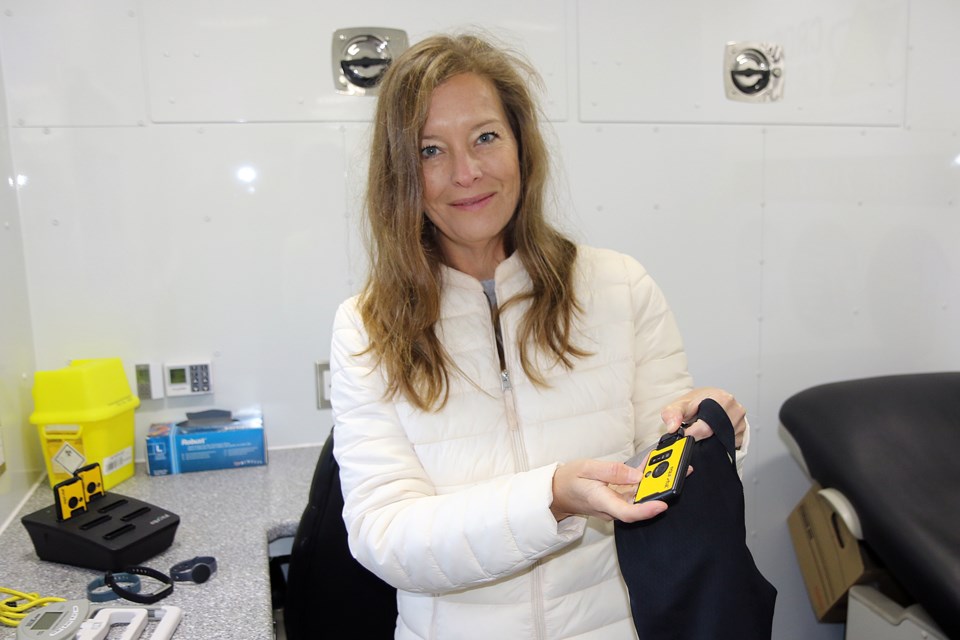THUNDER BAY – Workers in Northwestern Ontario face some of the harshest conditions in the province.
Kathryn Sinden, an assistant professor at Lakehead University’s school of kinesiology, said having the Centre for Research in Occupational Safety and Health mobile unit available to her and her students can provide valuable research to help ensure better health outcomes for all.
“This kind of equipment allows us to go on site, on actual work sites and engage with workers, engage with workplaces and create evidence-based solutions to help the workers work more safely,” Sinden said on Wednesday, before setting off in the mobile unit for Fort Frances.
Sinden added the problems faced by workers in the region are often unique to Northwestern Ontario.
“One of the challenges we have in our work is bridging that field-to-lab challenge. A lot of research that’s created tends to be very lab-based,” Sinden said.
“So it’s very hard to extrapolate those findings to the field. The mobile CROSH unit lets us take things, like wearable technology, and do those kind of things in the field.”
Mining sites and mills are two of the occupations of interest to Sinden in her research, which specializes in ergonomics.
“They’re very highly, physically demanding work. Heat stress can be a problem. Cold stress can be a problem. It allows us to create solutions using some of that technology.”
Dominique Gagnon, an assistant professor at Sudbury’s Laurentian University, which has partnered with Lakehead to operate the CROSH unit, said they’ve worked with a variety of different occupations, most recently with mine rescue workers in Sudbury.
“We know that miners carry a lot of gear, they work in extremely warm conditions that can be quite dangerous for them to actually perform their work on the ground,” Gagnon said.
“From there we also work with workers in the industry of forestry and a wide variety of fields ... If there are particular workers that are concerned about vibration levels on a particular unit, we can actually assess the vibration levels, tell them how they can maybe assess it themselves and report it to their superiors, to maybe develop some strategies and solutions to reduce the vibration levels.”
Workers can also be brought on board the CROSH unit for training sessions on a variety of different topics.
“We are trying to conduct as much research as possible, as much work as possible throughout Northeastern and Northwestern Ontario. It is a core part of our mandate. We really want to help Northern Ontario workers be safer and healthier.”
